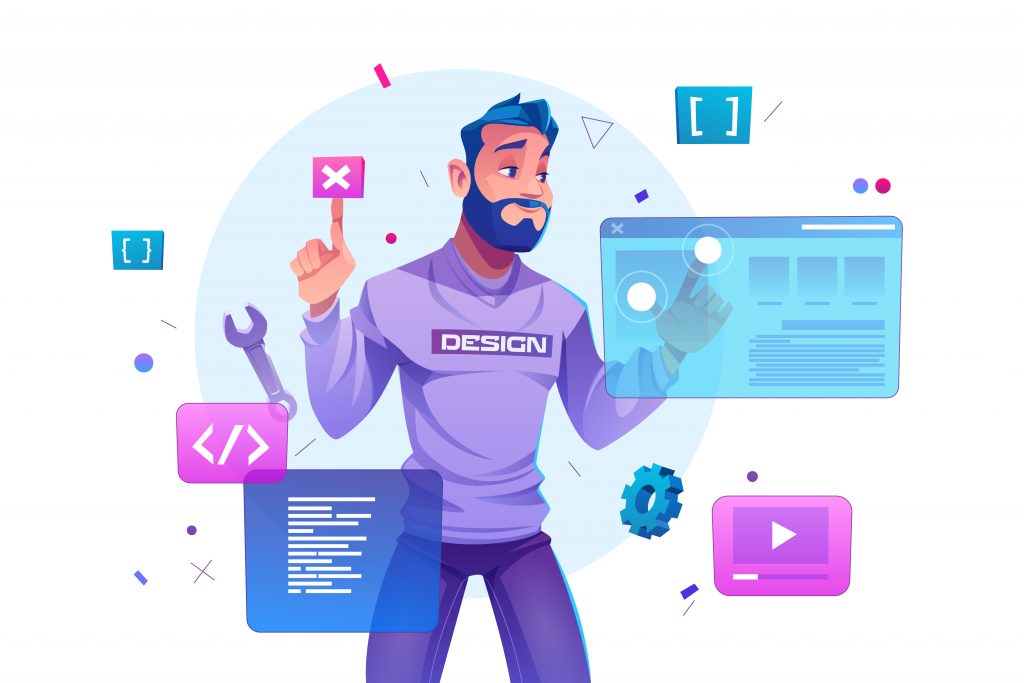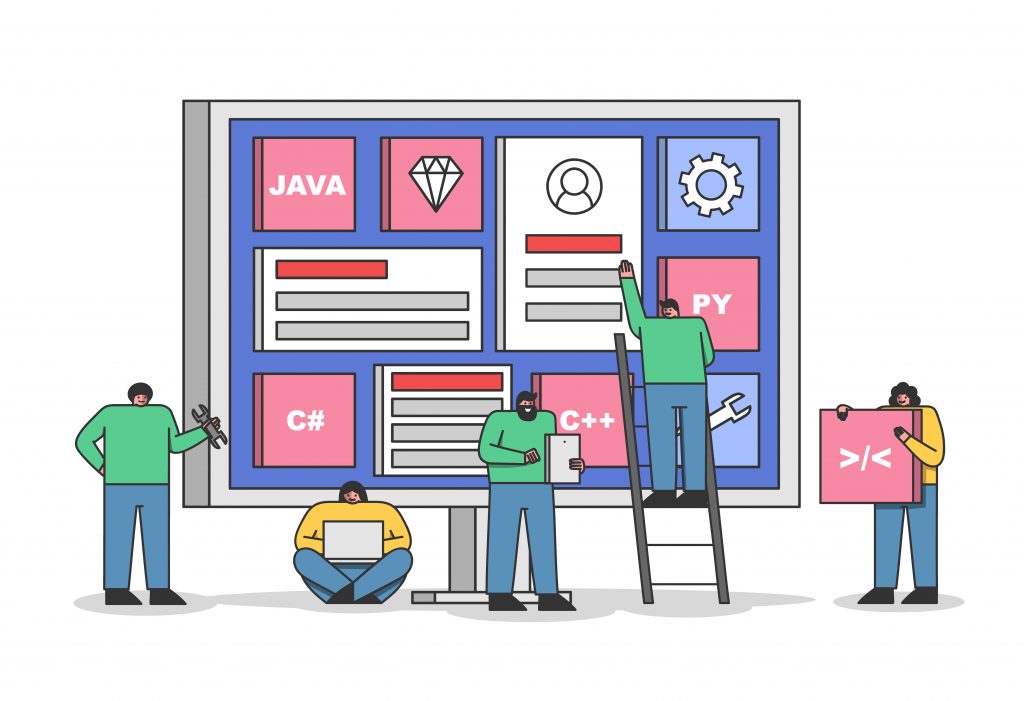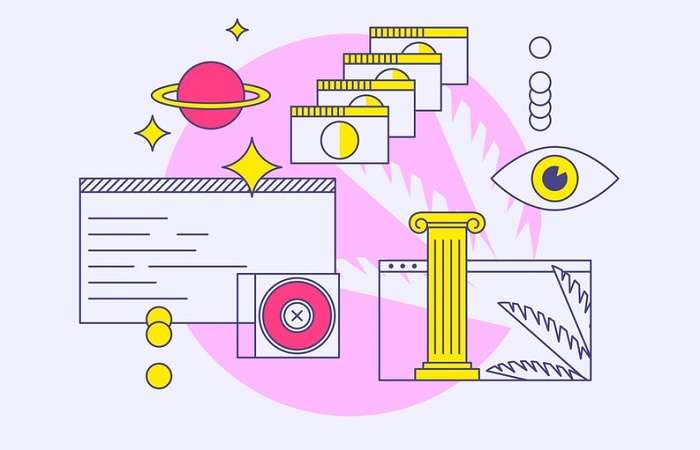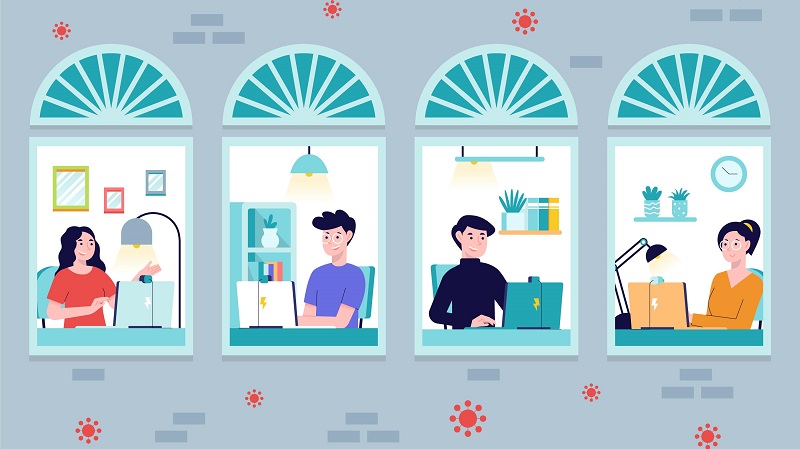
Table of Contents
If you are starting a new business, you will probably need to create an online presence (design a website) to attract more attention to your products or services. 70 to 80% of consumers research a business online before visiting in person or making a purchase. That’s why having a website, especially a well-designed and optimized website has become very important.
Now, especially if you are not familiar with web design, it might seem very confusing to find and contrast professional from amateur designers and developers. Here, we are going to give you some criteria for:
- Starting your web design and development project.
- Hire a web developer for your project.
1. Define your goals for wanting to have a website
First off before starting to design a website, know what you want, and why you want to have a website. The main purpose of a business website is to turn visitors into customers.
Deciding on having or not having a website depends on the type of business and products or services you offer. For example, if you are a local supermarket, it’s probably less crucial for you to have a website. Since your customers are usually locals who come to your shop to purchase what they want; it’s unlikely for them to want to place an order online.
On the other hand, if you are selling specific products, let’s say apparels, that have a wider range of customers, not necessarily local to you, then having a website to showcase your products to a wider audience is not just wise, but vital for your business to thrive.
In some cases, you could feel the demand of having an application for your business. You can get more tips to hire a mobile developer on this platform. That’s why, looking at your business, you need to set goals for what you want to achieve and how these goals are attainable before having a website designed.

Top 3 soft skills you need to acquire as a freelancer
2. Specify what you exactly want from your website
Ask yourself, “what is it that my website will do for my business?”
A website designer or a developer implements your demands and requests for the most part and at times, they will give you advice and recommendations. But in the end, you know what your business needs and what a website can add to it. Therefore, you need to specify what you want to get out of a website.
Do you want it to be an e-commerce website or an introductory site that increases awareness of your business? Do you want it to look friendly or professional? What options does it give to the audience, can they sign up and perform something online or is it going to be an educational platform where they can enroll and learn something new?
In addition to design, an option that has become prominently popular is paying attention to the User Experience(UX). The UX of the website comes ahead of design and determines how a user experiences working with your website.
Depending on your demand, there is also necessary to think about how to provide the UX design of your website. This is up to your UX designer. They would provide you with the most creative UX design. Hire a UX designer provides you with the experience of using a particular product or service.
These are all factors needed to be determined ahead of designing the website. They will give the designers and the developers a clear understanding of the task at hand; and help them deliver a more accurate result, one that is closer to your request.
In order to find out which type of website suits your business best to design and what kind of experience you want your users to have on your website, it’s better to do some research, on your competitor’s or similar businesses’ websites. Hire a market researcher, who will provide you with a bunch of procedures for determining the viability of a new product or company services regard to customers’ needs.
3. Determine if you want an in-house or a freelance designer or developer
Depending on your budget and your demands, you might want to hire an in-house or freelance designer or developer. If your budget allows it and you need someone who works close to you with whom you can interact constantly and get feedback, then having an in-house designer or developer is the better choice. Especially if your work progresses constantly and it’s not just a one-time project.
However, if your budget is limited and you don’t have the resources (the office space and the digital equipment) for the job, hiring a freelancer could be more useful. There are websites like Perfectlancer that help you find talented professionals who can build your website. And you get to pay them only when you are completely satisfied with the result you have received without the need to pay any extra fees.

4. Check out their previous work, resumes and interview them
When you found some web designers and developers to choose from, it’s time for checking their backgrounds. See how quality was their past work and how satisfied their previous employers were with the results they received.
In the freelancing platforms, it’s easily discoverable by looking at the ratings and reviews written by past clients of each freelancer. The higher their ratings and the better the reviews, the more reliable their work will be. And you get to pick the ones you find more likely to deliver the results you are looking for (whose taste you find similar to yours).
Having a website created requires a lot of considerations on the project management part; or the person(s) in charge of this creation or redesign. When you are looking for the right person to work with, you need to know what you want from them in advance; and what will be your website’s options and facilities.
That’s why having a good perspective on the items mentioned above will help you to deliver a clear understanding of the problem to the designer and the developer and consequently, earn more accurate and desirable results.
Having your website designed and developed isn’t an easy task if you don’t know what you exactly want from it. A UX Expert could help you find out how your site works and gives it a better flow. Here you can take some tips to hire a UX designer.
But in the end, it’s you who knows what options your website should have. And that requires thinking ahead and delegating the job of design and development to top professionals in their field.










